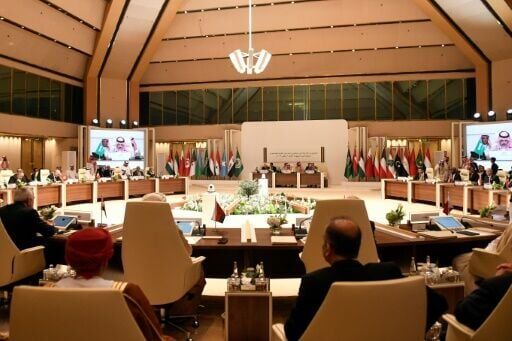An ’emergency’ summit in Riyadh over the weekend brought together leaders from 51 Arab League and Organisation of Islamic Cooperation (OIC) member states to address the ongoing crisis in Gaza. While state leaders expressed solidarity with the Palestinians, nine countries, including Saudi Arabia and the UAE, rejected a proposal to cut all ties with Israel.
Countries Rejecting the Proposal:
The following nine countries opposed the proposal:
❌ Saudi Arabia 🇸🇦 ❌ UAE 🇦🇪 ❌ Jordan 🇯🇴 ❌ Egypt 🇪🇬 ❌ Bahrain 🇧🇭 ❌ Sudan 🇸🇩 ❌ Morocco 🇲🇦 ❌ Mauritania 🇲🇷 ❌ Djibouti 🇩🇯
Disagreement Over Concrete Action:
Despite the urgency of the ’emergency’ summit, state leaders did not reach a consensus on a final statement. Some leaders resisted taking concrete action against Israel, reflecting a division among the attending nations.
Iran’s Calls for Tough Measures:
Iran, a vocal participant in the summit, called for robust measures against Israel, including arming Palestinians and severing diplomatic and economic ties with Tel Aviv. Iranian President Ebrahim Raisi also urged state leaders to designate Israel as a “terrorist organization.”
Divergence in Approaches:
While the leaders condemned Israel’s actions and expressed support for the Palestinians, those countries that officially recognize Israel, such as Egypt, Jordan, the UAE, Bahrain, and Morocco, resisted cutting ties. These nations have developed diplomatic, military, and security cooperation with Israel, with some normalizing ties as recently as 2020.
Complex Regional Dynamics:
Iran’s involvement in the summit is notable, given its historic rivalry with Saudi Arabia. The call for arming Palestinians aligns with Iran’s regional strategy, supporting militant groups in Lebanon, Syria, Iraq, and Yemen. This regional involvement has led to attacks on Israel and international forces in the area.
Ongoing Conflict in Gaza:
As the summit unfolded, Israeli ground forces continued their advance into Gaza, encircling the northern part of the enclave and imposing a siege on a major hospital. Aerial bombardments persist, prolonging the 38-day conflict that has claimed over 11,000 lives.
The rejection of the proposal to sever ties with Israel by Saudi Arabia, the UAE, and seven other Muslim-majority nations underscores the complexity of diplomatic relations in the Middle East. While expressions of solidarity with the Palestinians were unanimous, the divergence in approaches reveals the challenges in finding a unified response to the Israel-Gaza conflict. The ongoing regional dynamics and geopolitical considerations continue to shape the responses of nations involved in the summit.
















